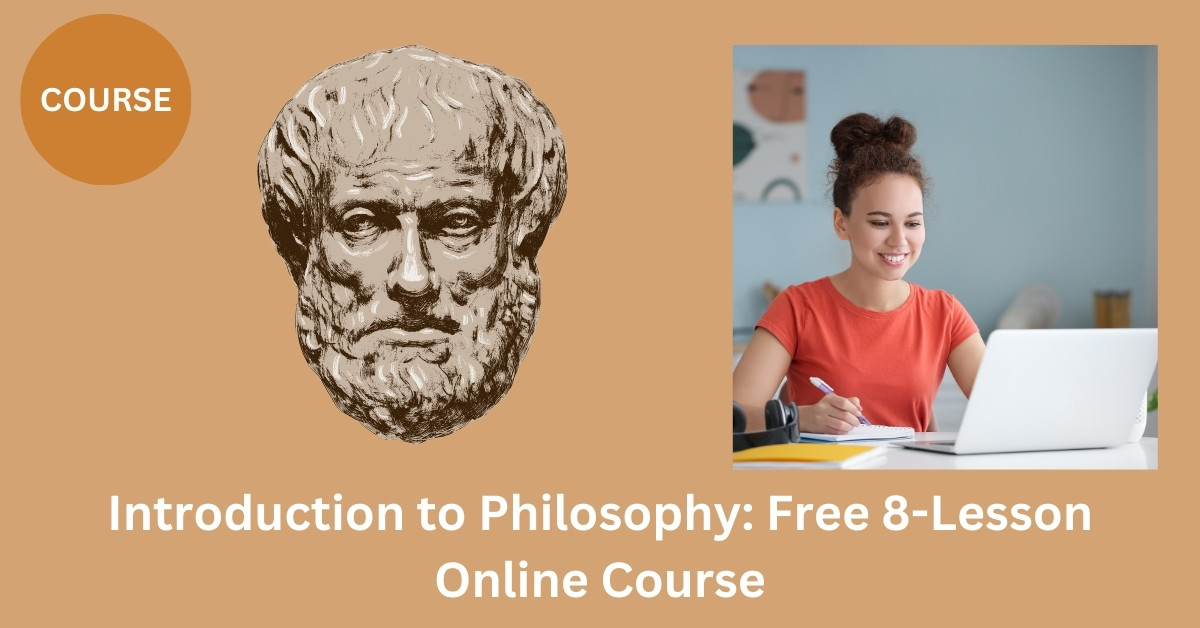Philosophy offers a powerful way to seek a more meaningful and fulfilling life, but the vast amount of information available can often feel overwhelming. By returning to the core principles, we can better understand and apply philosophy in our daily lives. One such foundational concept is Buddhist philosophy and its teaching of the Noble Eightfold Path. Gaining a clearer understanding of this idea can profoundly impact how we incorporate philosophical insights into our pursuit of meaning. This article will examine Buddhist philosophy, the Noble Eightfold Path, and their significance in the quest for a more purposeful existence.
Key features of Buddhist philosophy

Buddhist philosophy is centered around understanding the nature of suffering and how to overcome it. At its core are the Four Noble Truths, which explain that suffering exists, has a cause, can end, and there is a path to its end. This path, known as the Noble Eightfold Path, includes principles like right mindfulness, right action, and right effort, which guide individuals toward ethical living, mental clarity, and wisdom.
Another key concept is the idea of impermanence—everything in life is constantly changing, and nothing remains the same. This ties into the understanding of “non-self,” which means that there is no permanent, unchanging self or soul; our identity is a collection of ever-shifting experiences. These insights aim to reduce attachment and lead to inner peace.
Meditation and mindfulness are central practices in Buddhism, helping individuals cultivate awareness and focus. Through these, practitioners can observe their thoughts and emotions without judgment, leading to a deeper understanding of themselves and the world. Ultimately, Buddhist philosophy encourages compassion, kindness, and living in harmony with others, making it not just a spiritual path but also a guide to living a peaceful and meaningful life.
What is the Noble Eightfold Path?
Buddhism teaches that the Noble Eightfold Path is a central practice for individuals seeking spiritual growth and understanding. It is presented as a guide to live a meaningful and ethical life, and is one of the core teachings of the Buddha. This path is divided into eight aspects, which are grouped into three main areas of practice: wisdom, ethical conduct, and mental discipline. Each aspect focuses on a specific way of thinking or acting that aligns with the principles of clarity, mindfulness, and compassion. Rather than being a linear progression, the Noble Eightfold Path is understood as a holistic approach, where all parts work together and support each other. It emphasizes the importance of inner awareness and aligning one’s thoughts, intentions, and actions with wholesome qualities. The path encourages individuals to cultivate harmony within themselves and the world around them, contributing to the gradual cessation of suffering.
This example helps to demonstrate this philosophical perspective. A practical scenario reflecting Buddhism’s view about the Noble Eightfold Path might involve someone striving to live a balanced and ethical life. Imagine a person who encounters conflict at work. Instead of responding with anger or harsh words, they make an effort to follow right speech by speaking calmly and truthfully, avoiding harmful or divisive language. Simultaneously, they practice right mindfulness by staying fully present in the moment and reflecting on how their actions impact others. They might also engage in right action by working to resolve the conflict in a way that promotes understanding and harmony. Through these choices, they aim to create a ripple effect of positivity and peace in their surroundings, illustrating the application of this path in a simple, relatable way.
Challenges to Buddhism’s view about the Noble Eightfold Path
Philosophers who object to or reject Buddhism’s view of the Noble Eightfold Path often do so because of disagreements with its fundamental assumptions or the practicality of its teachings. One common critique is aimed at the Path’s reliance on detachment and the ultimate goal of achieving Nirvana. Critics argue that these ideas might encourage an overly escapist outlook on life, where individuals withdraw from worldly concerns instead of confronting life’s challenges directly. From this perspective, the focus on escaping suffering and breaking the cycle of rebirth could seem to neglect the value of actively engaging with life’s joys, relationships, and responsibilities.
Another objection arises from the philosophical idea of selfhood. Buddhism emphasizes the concept of no-self (anatta), which rejects the existence of a permanent, unchanging self. However, some philosophers find this view problematic, as it conflicts with the way many people experience their personal identity. Critics suggest that by denying a stable sense of self, the Noble Eightfold Path undermines meaningful individuality, which is crucial for fostering personal growth, accountability, and moral agency.
Additionally, some skeptics question the universality of the Path’s teachings. Critics may argue that its principles are too tightly tied to ancient cultural and religious contexts to apply universally in today’s diverse world. For example, aspects of the Path that emphasize renunciation or meditation might not resonate with people from other cultural or philosophical traditions who prioritize activism, creativity, or communal living. This raises the concern that the Path doesn’t provide a one-size-fits-all solution to human suffering.
Finally, the feasibility of following the Noble Eightfold Path can also come under scrutiny. Its requirements for deep mindfulness, ethical discipline, and meditative focus might appear unattainable for many people, particularly in modern societies where time and resources are limited. This has led some to view the Path as idealistic or impractical for ordinary individuals.
Overall, objections to the Noble Eightfold Path often stem from concerns about its practical application, cultural relevance, and philosophical assumptions, reflecting a diversity of perspectives about what it means to lead a meaningful life.
Why the Noble Eightfold Path is important to Buddhist philosophy
These are some of the main reasons why grasping the concept of the Noble Eightfold Path is essential to comprehending Buddhist philosophy.
- It Provides a Structured Guide for Ethical Living
The Noble Eightfold Path lays out clear and practical guidelines for ethical living. It emphasizes principles such as right speech, right action, and right livelihood, which encourage individuals to act in ways that are kind, fair, and respectful toward others. These guidelines help one foster trust and harmony in relationships, making them relatable to people from all walks of life. By addressing how individuals interact with their communities and the world, the framework promotes living in alignment with moral values that benefit society as a whole.
- It Encourages Mindfulness and Mental Clarity
By including principles like right mindfulness and right concentration, the Noble Eightfold Path plays a key role in cultivating a focused and clear mind. Mindfulness involves being fully present in the moment without judgment, which helps reduce stress and improve emotional well-being. Concentration, on the other hand, enhances one’s ability to focus on specific tasks or issues without distraction. Together, these practices help individuals gain greater self-awareness and better manage their thoughts and emotions.
- It Promotes Wisdom and Understanding
The path incorporates elements such as right view and right intention, which encourage individuals to develop a deeper understanding of their lives and actions. Right view involves seeing things as they truly are, while right intention guides one toward positive motivations and away from harmful desires or aversions. These principles inspire people to reflect on their values and make more informed decisions. By fostering wisdom, the path provides a foundation for growth and improved judgment in daily life.
- It Balances Practicality and Spirituality
The Noble Eightfold Path is significant because it bridges practical actions with inner spiritual growth. For instance, it not only discusses concepts like meditation but also includes ideas that are easily applicable to everyday life, such as ethical behaviour and thoughtful living. This balance between practical and spiritual elements allows individuals to integrate the teachings into their lives without feeling overwhelmed. It supports a holistic approach to self-improvement that is both achievable and meaningful.
Contrasting Buddhist philosophy with Jean-Paul Sartre
The Noble Eightfold Path in Buddhism is a roadmap for ethical living and personal growth, aiming to reduce suffering and lead individuals towards enlightenment. This framework emphasizes intentional actions, mindfulness, and a deep understanding of life’s interconnectedness. Jean-Paul Sartre, a 20th-century existentialist philosopher, explored themes of freedom, choice, and the human condition, but his ideas contrast with the Buddhist path in significant ways.
Sartre’s philosophy centers on the idea of radical freedom and the belief that individuals define their own essence through choices and actions. He rejected any preordained purpose or universal moral code, proposing instead that meaning comes solely from human responsibility and the pursuit of authenticity. This stands in contrast to the Noble Eightfold Path, which upholds a clear guide for ethical conduct and mental discipline rooted in principles that transcend personal interpretation.
While both approaches value personal responsibility, the contrast lies in the foundations of their philosophies. Buddhism presents a structured path with intrinsic moral guidance, whereas Sartre’s existentialism insists that morality is a construct each person must create. Ultimately, Buddhism seeks liberation from suffering by harmonizing with universal truths, whereas Sartre focuses on grappling with the burden of freedom in a seemingly indifferent universe. Despite their differences, both perspectives challenge individuals to live intentionally and with awareness.
The Noble Eightfold Path, Buddhist philosophy and the meaning of life
Reflecting on the Buddhist perspective of the Noble Eightfold Path can provide valuable insights into living a more meaningful and fulfilling life, regardless of whether one fully agrees with this view. At its core, this perspective encourages mindfulness, intentionality, and ethical living, which are universally relevant principles. Taking time to reflect on ideas like these allows you to consider how your own habits, choices, and mindset shape your life’s direction and quality. Everyone strives for happiness and purpose, and exploring different philosophies, including Buddhism, can offer fresh approaches to achieving those goals.
When seeking meaning in life, it’s easy to get caught up in the distractions of daily routines or the demands of societal expectations. Reflecting on philosophies like those in Buddhism encourages you to pause and evaluate what truly matters to you. Doing so can help you align your actions with your values, ensuring that you live more authentically. For instance, principles like compassion and mindfulness can remind you to act with kindness and stay present in the moment, rather than rushing through life without really experiencing it.
This reflection also encourages growth. It’s not about accepting or rejecting an entire worldview but about taking time to consider which aspects resonate with you. By engaging with these ideas, you might discover new ways to handle challenges, improve your relationships, or find inner peace. Even if you don’t agree with Buddhism’s teachings, the process of examining different perspectives can broaden your understanding and help you approach life with greater clarity and intention.
Ultimately, the significance of reflecting on the Noble Eightfold Path lies in its practical applicability to real life. Whether it’s striving to be more ethical, fostering meaningful connections, or simply becoming more present, these reflections empower you to live with greater purpose. They emphasize that leading a meaningful life often starts with mindful self-examination and a commitment to personal growth—a lesson that transcends any single philosophy or belief system.
Further reading
Bhikkhu Bodhi. (2000). The noble eightfold path: Way to the end of suffering. Kandy, Sri Lanka: Buddhist Publication Society.
Harvey, P. (2013). An introduction to Buddhism: Teachings, history and practices (2nd ed.). Cambridge University Press.
Keown, D. (1992). The nature of Buddhist ethics. Palgrave Macmillan.
Lopez, D. S. (Ed.). (2005). Critical terms for the study of Buddhism. University of Chicago Press.
Rahula, W. (1959). What the Buddha taught. Grove Press.
Smitha, R. (2001). Ethics and emptiness in Buddhist thought. Oxford University Press.
Thera, N. (1981). The heart of Buddhist meditation. Rider & Company.
Williams, P., Tribe, A., & Wynne, A. (2012). Buddhism: Critical concepts in religious studies. Routledge.
Young, S. B. (2004). Steps to the great perfection. Wisdom Publications.


